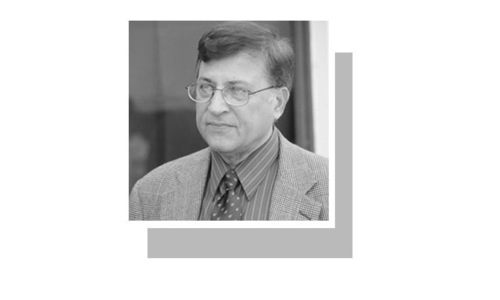Pakistan rejects 'unilateral and arbitrary' US designation for religious freedom violations

Pakistan on Tuesday rejected its listing by the United States as a violator of religious freedoms, saying the "unilateral and arbitrary designation" is not only detached from the ground realities of Pakistan but also raises questions about the credibility and transparency of the entire exercise.
The Foreign Office in a strongly worded statement also questioned the "conspicuous omission" of India from the list, saying it reflected the "subjectivity and bias" of the US State Department’s designations.
Related: India's NRC and BJP's dangerous game of citizenship and religion
The US had last week retained Pakistan among the countries that tolerate religious discrimination. The determination, made on December 18, includes Myanmar, China, Eritrea, Iran, North Korea, Pakistan, Saudi Arabia, Tajikistan and Turkmenistan among the states that have been re-designated as “Countries of Particular Concern (CPC)”.
The State Department makes these designations under the International Religious Freedom Act of 1998 and countries on the CPC list are classified as “having engaged in or tolerated systematic, ongoing, [and] egregious violations of religious freedom”.
Countries in this category can face further actions, including economic sanctions, by Washington.
The FO spokesperson said Pakistan's designation is reflective of "selective targeting of countries, and thus unlikely to be helpful to the professed cause of advancing religious freedom".
"Pakistan is a multi-religious and pluralistic country where people of all faiths enjoy religious freedom under constitutional protections," the press release said, adding that all branches of the government — the executive, legislature and the judiciary — have made concerted efforts to ensure that all citizens of Pakistan can practice their religion freely.
"The higher judiciary of the country has given landmark judgements directing on ensuring the sanctity and security of places of worship of minorities."
According to the FO, Pakistan has also engaged with the international community, including the US, to develop a better understanding of religious freedom issues and earlier this year, Senator Samuel Brownback, the US Ambassador-at-Large for International Religious Freedom, was welcomed in Pakistan for dialogue to advance the mutual objectives of religious freedom globally. "It is regrettable that this constructive engagement has been overlooked," the statement said.
It added that the subjectivity and bias of the exercise are further illustrated by the omission of India, "the biggest violator of religious freedom".
"The US Congress has held two hearings and more than 70 US legislators have publicly expressed concerns over India’s treatment of Kashmiris and prolonged suppression of their fundamental rights in the Indian-occupied Jammu and Kashmir," the spokesperson said, noting that the UN High Commissioner for Human Rights in Geneva, the UN Secretary General, and several European parliaments have expressed similar concerns.
"In today’s India, people belonging to minority communities are being lynched, persecuted and killed with impunity. The National Register of Citizens (NRC) and the recently adopted Citizenship Amendment Act (CAA) are the latest examples of the Indian government's actions to discriminate against people and evidently pave the way towards cleansing of society on the basis of religion."
The press release stated that challenges to religious freedom are a global concern and "only cooperative efforts can help address them".
It highlighted that Pakistan for its part has also raised concerns over the growing trend of Islamophobia in many Western countries, including the US.
"Working together in an environment of trust and understanding is the best way forward in realising the objective of promoting and protecting religious freedom," the FO concluded.















































